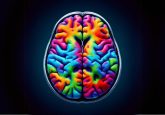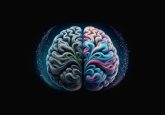The LongROAD to success: study reveals machine learning can detect dementia using driving data

A novel machine learning model is highly accurate at detecting mild cognitive impairment (MCI) and dementia using predictive variables obtained from driving data.
Researchers, comprising three schools from Columbia University (NY, USA) – Mailman School of Public Health, Fu Foundation School of Engineering and Applied Science and Vagelos College of Physicians and Surgeons – established a joint effort to develop a machine learning model (Longitudinal Research on Aging Drivers – LongROAD) with the ability to accurately detect MCI and dementia early on in older drivers. The anticipation of these conditions is crucial to help enable those affected to arrange future care, receive support and swift treatment with maximum benefit.
Dementia is not a disease in itself, but is typically defined as a group of related symptoms that cause impaired cognitive function, such as problems with memory, reasoning and decision-making. This impairment is such that it interferes with everyday functioning. MCI on the other hand, is characterized by a milder loss of cognitive abilities, including memory and concentration, but this impairment is not severe enough that it interferes with everyday functioning.
Picture this. You and a car. Cruising down an open stretch of road, soaking up the soft orange glow of sunset with a gentle breeze brushing your skin, sloping mountain peaks rising and falling in the distance. A sweet sense of freedom. This sounds a lot more appealing than the typical assessments used to diagnose dementia, such as physical examinations or memory tests.
There is no singular test to diagnose dementia or MCI, but previous studies have identified non-typical behavioral changes in driving as early indications of MCI and dementia. However, this research typically suffers from drawbacks such as insufficient follow-up periods and limited sample sizes. Now researchers have overcome these limitations.
In a large naturalistic driving study, large amounts of longitudinal data from recording devices measuring behavior, tempo-spatial pattern and performance were obtained from a sample size of 2977 active drivers, aged 65–79, participating in the LongROAD project across the United States, with a follow-up duration of up to 44 months. All participants were cognitively unimpaired at the beginning of enrolment.
Utilizing an interaction based ResBlocks classification method as a learning model, the team were able to identify digital markers by selecting predictive variables in the dataset. During the study, eight participants were diagnosed with Alzheimer’s disease, 17 with other or unspecified dementia and 36 with MCI.
The learning model reached a near perfect score of 96% accuracy when predicting MCI and dementia. This surpassed the accuracy of other statistical models typically utilized in AI for predicting disease by 6–10%, such as logistic regression and random forest. The interaction based ResBlocks model also achieved lower false positive and negative errors, when compared to logistic regression and random forest performance.
The two most powerful predictive variables were identified as the number of hard braking events and the right to left turn ratio. Considering left turns pose more danger in the United States, drivers tend to increase the number of right turns and decrease the number of left turns with age.
Guohua Li, senior author of the study, concluded, “About 85%of older adults in the United States are licensed drivers. As the most preferred mode of personal transportation, driving plays an important role in maintaining independence, self-control, social connection and quality of life. Safely operating a car requires essential cognitive and physical functions.”
“Our study indicates that digital markers embedded in routinely collected driving data can be used through innovative machine learning techniques as valid and reliable artificial intelligence for predicting mild cognitive impairment and dementia. Early detection of mild cognitive impairment and dementia could lead to timely evaluation, diagnosis and interventions, which are especially salient in the absence of effective therapeutics.”
Currently, LongROAD is still ongoing, so more data will be analyzed to enhance the accuracy of the predictive model. Once more information regarding biomarkers and driving trajectories is acquired, the team also aims to develop a personalized classifier that is able to predict an individual’s risk of developing MCI and dementia with time.


